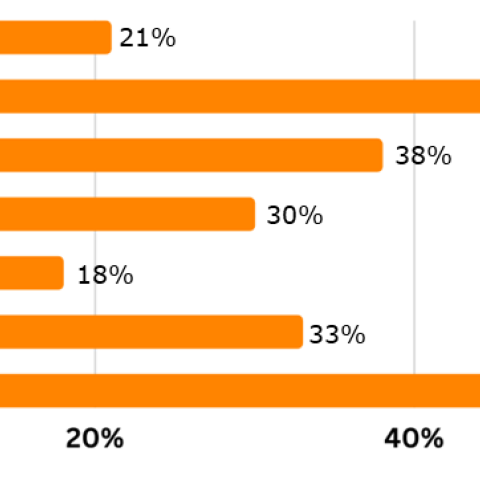Survey on citizenship education and the European dimension of teaching - Results

Citizenship education is an important aspect of preparing pupils for active and informed participation in society. The Paris Declaration (2015) on promoting citizenship highlights the need for education that emphasises freedom, tolerance, and non-discrimination. Similarly, the Council recommendation (2018) on promoting common values, inclusive education, and the European dimension of teaching supports the integration of these values into education, with a focus on creating a more inclusive and equitable society. Meanwhile, the recent European Parliament resolution (2022) on the implementation of citizenship education actions emphasises the importance of teaching the European dimension of citizenship, including democratic values, human rights, and cultural diversity.
The survey on citizenship education was open from 9 March to 1 May 2023 and it gathered 280 responses, most of which came from Italy, Greece, Romania, Türkiye and Georgia.
Which of the following best describes your role?
- Teacher – early childhood education and care
- Teacher – primary education
- Teacher – secondary education
- Teacher – vocational education
- School head
- National, regional, or local authority
- Teacher educator
- Education policymaker
- Parent
- In-school support staff (e.g., school librarian, career counsellor)
- External practitioner (visiting schools)
- Other educational professional/stakeholder
1 - Which of the following best reflects your teaching approach to citizenship education?
Overall, 91 % of the respondents indicated that for citizenship education, most adopt a cross-curricular approach (70 %). It is taught as a compulsory separate subject for 15 % of the respondents and as an optional subject for 6 %.
- I teach citizenship education as a compulsory separate subject.
- I teach citizenship education as an optional subject.
- I take a cross-curricular approach, in which citizenship education is taught across different subjects.
- I do not address citizenship education in my teaching at all.
- Not applicable (e.g., I don’t teach)
2 - In your view, what key changes would enhance the teaching of citizenship education?
Every option attracted a degree of support, but more than half of the respondents considered that to enhance the teaching of citizenship education further support should be provided to integrate it into other curriculum subjects (56 %) and that it should be taught in a culturally appropriate and inclusive manner (54 %). Other measures supported were increasing teacher training (38 %), emphasising the European dimension of citizenship (33 %) and providing teaching materials (30 %). On the other hand, additional time in the curriculum (21 %) and support in designing appropriate assessment methods (18 %) received lower levels of support.
- More time in the curriculum.
- Support to integrate citizenship education into other curriculum subjects.
- More teacher training and expertise.
- More teaching materials for citizenship education.
- Support in designing appropriate assessment methods.
- More emphasis on the European dimension of citizenship.
- Support in teaching citizenship education in a culturally appropriate and inclusive manner.
3 - In your view, which of the following do teachers most need to deliver citizenship education and the European dimension of teaching?
The responses to this question were relatively even. The respondents to the survey considered the most needed knowledge or skill to be, first, knowledge of democratic values and principles from local to EU and global levels (49 %), followed by critical thinking and media literacy skills (46 %). A further 44 % of the respondents selected an understanding of cultural diversity and 40 % an awareness of current events, European and global issues. The functioning of the EU, its institutions, policies, history and values (31 %), digital literacy (30 %) and the ability to facilitate group discussions and debates (29 %) were considered lower priorities.
- Knowledge of democratic values and principles from local to EU and global level.
- Understanding of cultural diversity.
- Ability to facilitate group discussions and debates.
- Critical thinking and media literacy skills.
- Digital literacy and use of technology.
- Awareness of current events, European and global issues.
- Knowledge and understanding of the functioning of the EU, its institutions, policies, history and values.
4 - In your view, which of the following strategies are the most effective to learn about inclusion, equity, democratic values, human rights, and cultural diversity?
Concerning the most effective strategies that can be used in citizenship education, 75 % of the respondents indicated involving pupils in school projects and activities that allow them to engage with peers from other countries and foster their understanding of the EU and how it affects their lives. Other choices attracted fewer responses: exploring the diversity of cultures and perspectives within Europe and beyond (44 %), encouraging pupils to reflect critically and draw their own conclusions (40 %) and taking action on issues that are important to them (35 %). Less cited strategies involved connecting European values to pupils’ personal experiences and stories (33 %), encouraging pupils to engage in discussions and debates about European values (25 %) and considering the local context in which values are being taught (18 %).
- Encouraging pupils to reflect critically and draw their own conclusions.
- Encouraging pupils to engage in discussions and debates about European values.
- Connecting European values to pupils’ personal experiences and stories.
- Considering the local context in which values are being taught.
- Encouraging pupils to take action on issues that are important to them.
- Exploring the diversity of cultures and perspectives within Europe and beyond.
- Involving pupils in school projects and activities that allow them to engage with peers from other countries and foster their understanding of the EU and how it affects their lives.
5 - Which of the following strategies do you consider the most effective to involve parents and the local community in citizenship education?
For this question, a small majority of the respondents (51 %) suggested inviting parents and community members to participate in school events and activities, as well as encouraging open communication and collaboration between teachers, parents and community members (51 %). Almost as many respondents (50 %) felt that fostering a positive and inclusive school culture is an effective strategy. However, arranging regular meetings to discuss the school's goals for citizenship education (23 %), and addressing resistance by openly raising concerns and finding solutions together (16 %) were regarded as less effective strategies.
- Inviting parents and community members to participate in school events and activities about citizenship.
- Holding regular meetings with parents and community members to discuss the school's goals for citizenship education.
- Encouraging open communication and collaboration between teachers, parents, and community members.
- Providing opportunities for parents and community members to volunteer in the classroom or participate in community service projects.
- Offering professional development opportunities for teachers on how to engage and involve parents and community members.
- Addressing resistance by openly addressing concerns and finding solutions together.
- Fostering a positive and inclusive school culture that values and respects the contributions of all stakeholders.
Conclusion
Citizenship education is an integral part of the teaching responsibilities for the vast majority of respondents. However, in their view, further support is needed to effectively integrate citizenship education into the curriculum and teach it in a culturally appropriate and inclusive manner. The development of democratic values, critical thinking skills and media literacy are identified as key priorities to enhance the teaching of citizenship education. Furthermore, involving pupils in school projects and activities, such as eTwinning, allows them to engage with peers from other countries, and encouraging open communication and collaboration between teachers, parents and community members are considered as the most effective strategies to involve parents and the local community in citizenship education.
Additional information
-
Education type:School Education
-
Target audience:Head Teacher / PrincipalParent / GuardianStudent TeacherTeacherTeacher Educator
-
Target audience ISCED:Primary education (ISCED 1)Lower secondary education (ISCED 2)Upper secondary education (ISCED 3)






